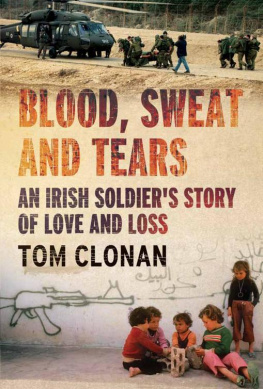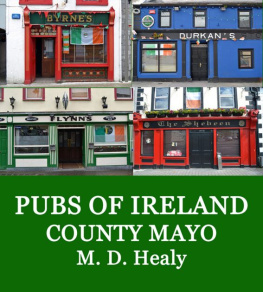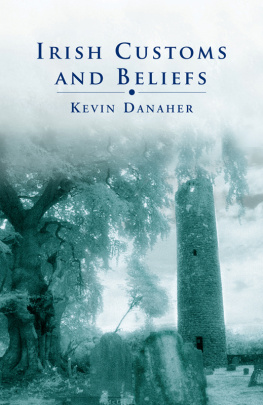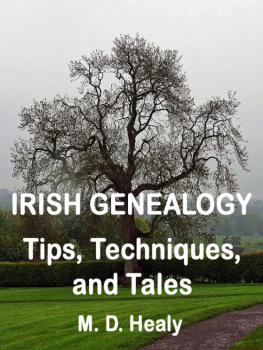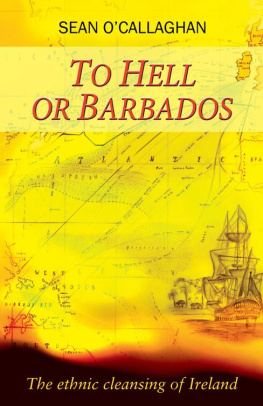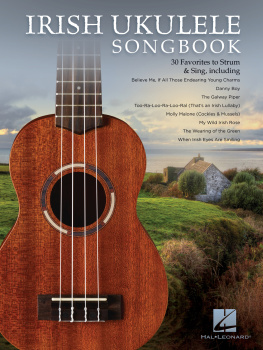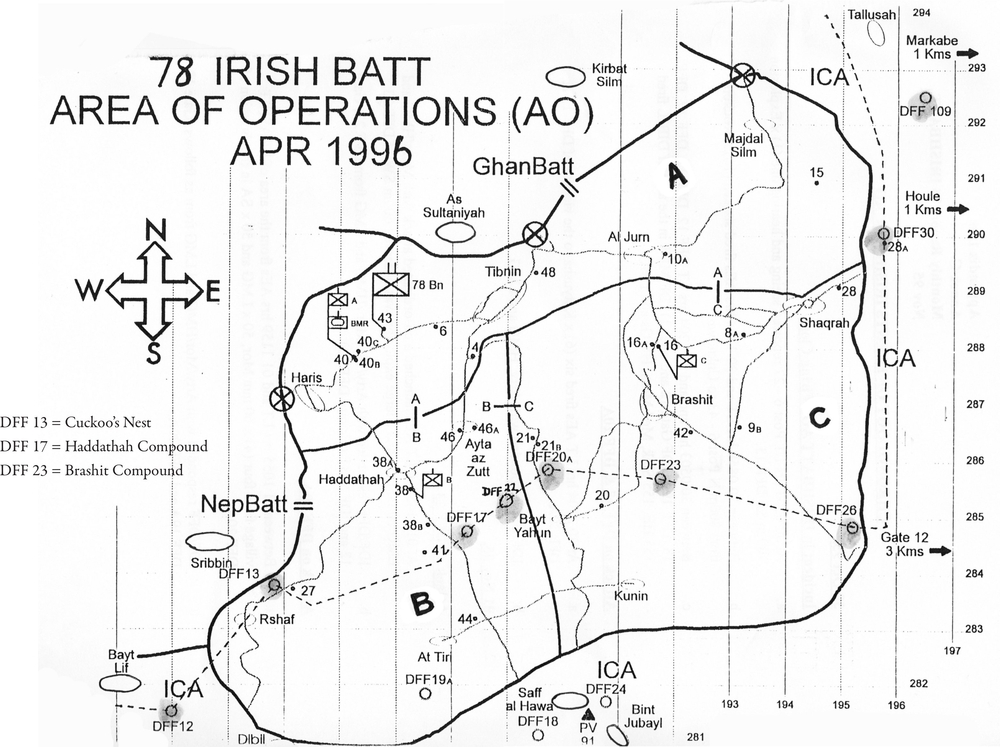I kicked and squealed my way into this life in the Rotunda Hospital on Dublins Parnell Square in the summer of 1966. As I did so, Palestinian militants crossed the border from Lebanon and infiltrated the Israeli settlement of Margaliot known in Arabic as Hunin. In the pre-dawn darkness, they planted a series of explosive devices among the dwellings and homes of the sleeping village. Their mission to kill as many Jewish settlers as possible. This latest action was just another in a series of hostile acts that would mark the beginning of a long and bitter cycle of violence between Lebanon and Israel. The rest, as they say, is history.
As my Mum held me that summer morning, I doubt if she was aware of unfolding events along the Lebanese-Israeli border. My Dad, a Dublin policeman based in Pearse Street Garda Station, did not have far to walk to greet me. As he made his way into the Rotunda, I doubt if he gave the Middle East a thought.
During that summer in Dublin however, a new chapter in the long and tragic history of the Middle East was opening in Lebanon. Little did my parents know then how that history would become an integral part of their newborn sons personal journey. In attempting to set out some of that personal journey here, I will try to bring you to Lebanon and back.
Operation Litani The Israeli Invasion of Lebanon
By 11 March 1978, I am ten years old. Im riding my red bicycle up and down Ballygall Avenue. I got it for Christmas. In Israel, little ten-year-old Yitzhak Ankwa, known affectionately as Yitzik, is excited. He is going with his little sister, Galit (aged two), on a bus trip along Israels coastal highway just north of Tel Aviv.
As the Ankwa children play and fidget and gaze out of the windows in the tour bus, Dalal Mughrabi and ten other Palestinian guerrillas are rowing quietly ashore at the beach at Maagan Michael. Just one mile from the Israeli coastal highway north of Tel Aviv. The Popular Front for the Liberation of Palestine (PFLP) and the Palestine Liberation Organisation (PLO) had fled to Lebanon in the late 1960s and were well established in the Lebanese coastal cities of Tyre, Sidon and Beirut at the time of the Ankwa familys day trip. Mughrabi and her fellow guerrillas have reached Israeli territory from Lebanon in Zodiac rubber dinghies. They have managed to navigate the short distance south along the Mediterranean coastline undetected. Approaching the beach, theyve cut the engines and are paddling gently ashore.
Gail Rubin, a forty-year-old photographer from New York is also on the beach at Maagan Michael. She is taking shots of wild seabirds among the marram grass. She is oblivious to the approach of the Palestinians. They splash ashore and begin unpacking and assembling their weapons. Kalashnikov assault rifles, grenades, explosives. Gail turns into the salt sea breeze of the Mediterranean and is taken by surprise as a number of figures approach her from the surf. She squints to see who else might be on the beach this early. Perhaps they are fishing.
The Palestinians approach her. And Gail knows in her heart and stomach that something is terribly wrong. They are too intense. Too close. Crowding around her and her camera equipment. At gunpoint they demand directions to Tel Aviv. She feels a surge of adrenaline. She thinks of her parents, Jonathan and Estelle, in their family home in New York. For Jonathan and Estelle it is Friday night, Eastern Standard Time. They have lit the Shabbat candles and prepare for the short Kabbalat Shabbat prayer service. They pray for their precious daughter. Their only child.
Gail focuses on the gun pointed at her. Aimed point blank towards her head. Her mind is racing. Fear, disappointment, sadness. Before she can say no, or please, there is a loud crack. Gail does not hear this sound. Only a sudden, inexplicable force which pushes her backwards and upwards. Then wet sand on her skin. Seeping cold through her clothes. The warm rush of her own blood mingling with the salt and sand. The Palestinians file past her lifeless body. Stepping around her camera equipment , they begin moving towards the coastal highway.
The Egged tour bus with Yitzik and little Galit on board suddenly slows and comes to a halt on the highway. Figures on the road waving it down. Through the window, the Ankwa children can see the glittering Mediterranean. Then, another series of loud cracking sounds. The man in front of them slumps in his seat as the Palestinians take the bus at gunpoint . The children stare at the blood sprayed all over the window and seatback.
The bus is driven south by the Palestinians. They shoot passengers in the bus. They shoot at passing cars. The children scream and weep. Parents plead. One by one, they too are shot. Including thirty-eight- year-old Haviv Ankwa. The bus is eventually halted by Israeli police at Herzliya. Thirty-eight Israelis are killed in the hijacking. Seventy-one are wounded. All of the Palestinians are killed. The Ankwa children die also.
The incident is known in Israel as the Coastal Road Massacre.
Three days later, the Israeli Defence Forces invade Lebanon in Operation Litani. They occupy the southern part of Lebanon in order to crush the PFLP and the PLO.
And two months later, in May of 1978, the first Irish troops arrive in south Lebanon as part of the United Nations Interim Force in Lebanon. They arrive as peacekeepers.
As I write, in the summer of 2012, the Irish Defence Forces are still soldiering in Lebanon. The Irish army have had an almost continuous presence in Lebanon over four decades. Over that time, many thousands of Irish soldiers have witnessed at first hand the bitter internecine violence within Lebanon. They have also witnessed the subsequent Israeli invasions of Lebanon in 1982, 1993, 1996 and 2006.
In total, Irish soldiers have served more than 40,000 individual tours of duty in Lebanon. All over Ireland, in almost every family across the country, there is an intimate link with Lebanon. An uncle, perhaps. A cousin. A niece. A son or daughter who has served in the cause of international peace. Despite this intimate linkage with the suffering of our brothers and sisters in Lebanon and Israel, there is little public understanding of our military involvement in Lebanon.
This book is intended to redress that imbalance. It takes the reader to Lebanon through the eyes of a young officer on his first tour of duty overseas. It reveals the true nature and intensity of peacekeeping operations . The book reveals for the first time what war is like for Irish soldiers serving in Irish uniform under the UN flag. It speaks frankly of the psychological stress and fear experienced by Irish troops under fire. It speaks of the squalor of modern warfare. And the suffering and pain inflicted on innocent civilians men, women and children alike.
I served in Lebanon as an artillery officer with the 78th Irish Battalion from October 1995 to April 1996. As a lieutenant, I was Group Commander of the Dismountable Element of the Battalion Mobile Reserve (BMR). The BMR was the mobile armoured element of the Irish Battalion. It acted as the rapid reaction force of the Irish Battalion in Lebanon. It was designed to act as the 911 element of the force the first responders to any major incident within the Irish Area of Operations (AO). These incidents ranged from intervening in and preventing the killing of innocent civilians, to armed confrontations with Hizbullah or the Israeli Defence Forces (IDF). My fellow officers in Lebanon jokingly referred to this unit as the Disposable Element of the BMR because of the number of armed confrontations in which we became involved.

